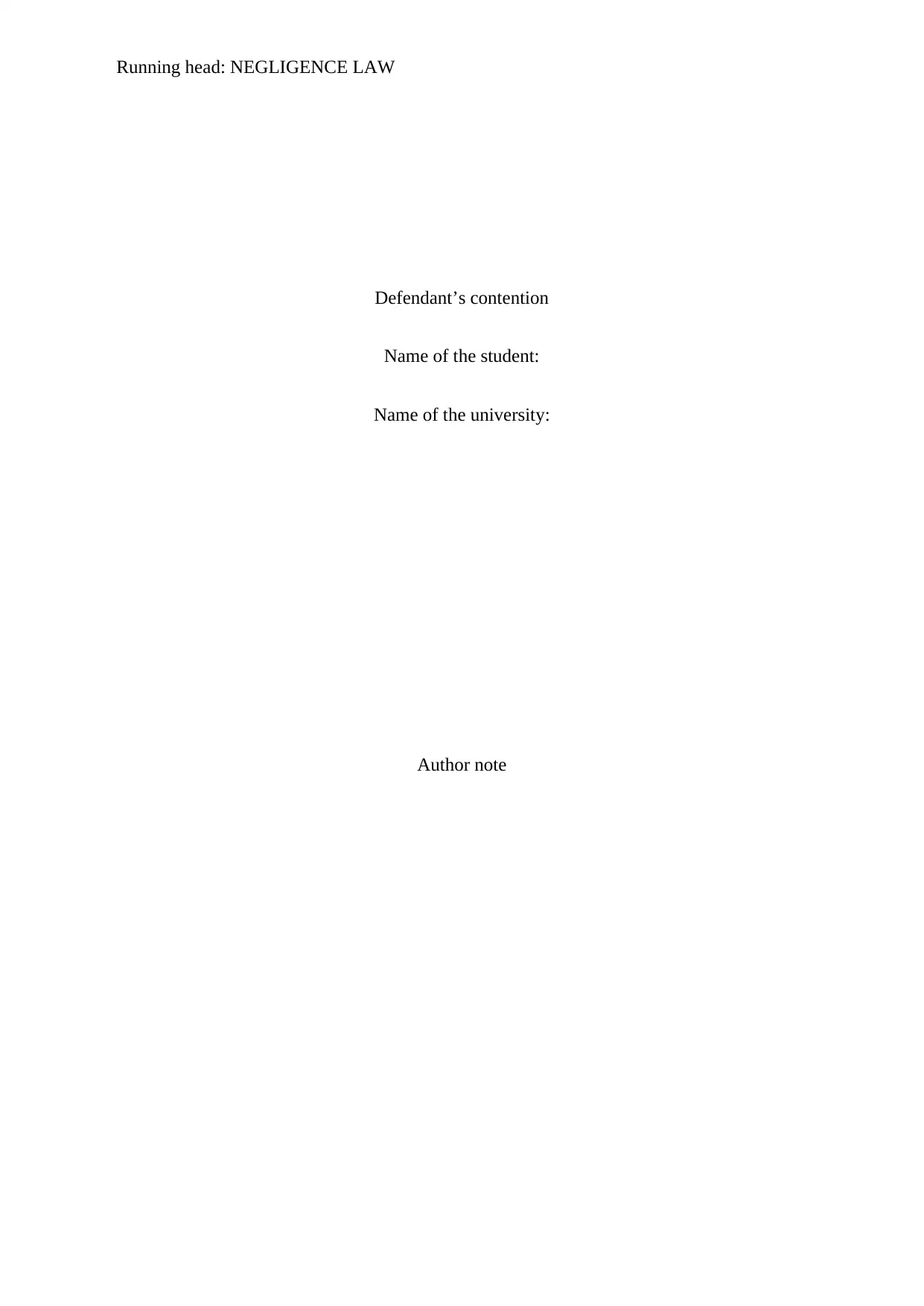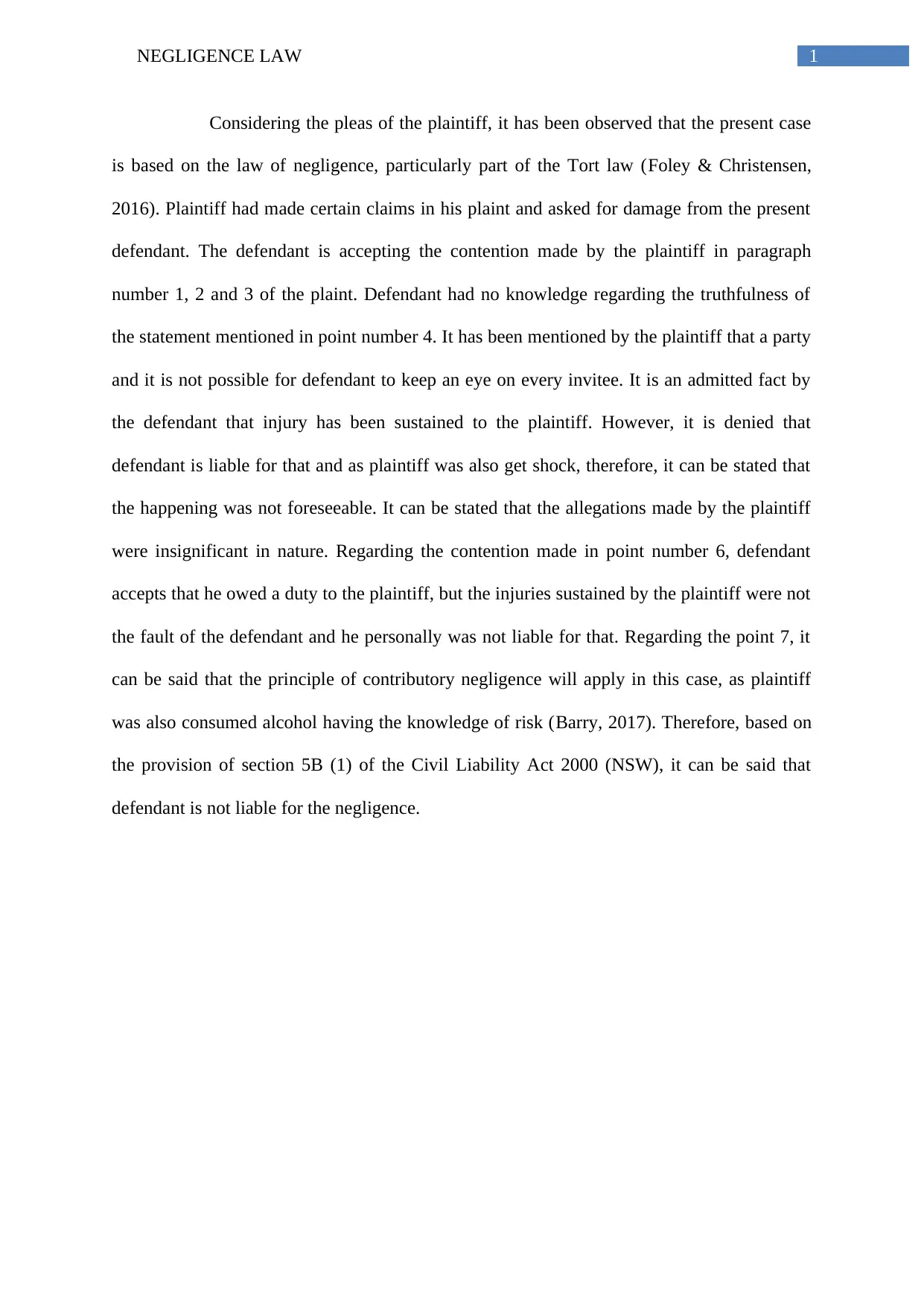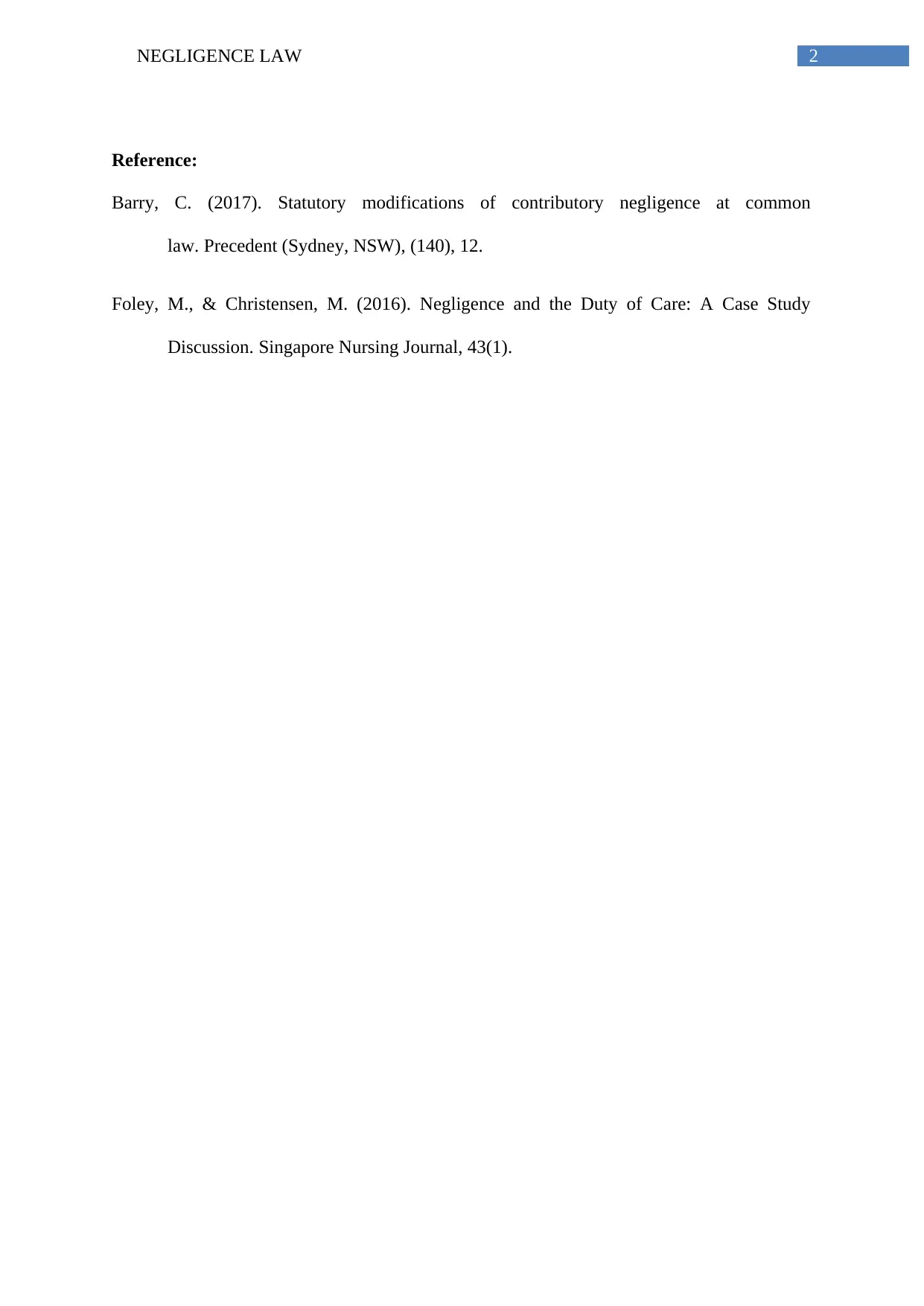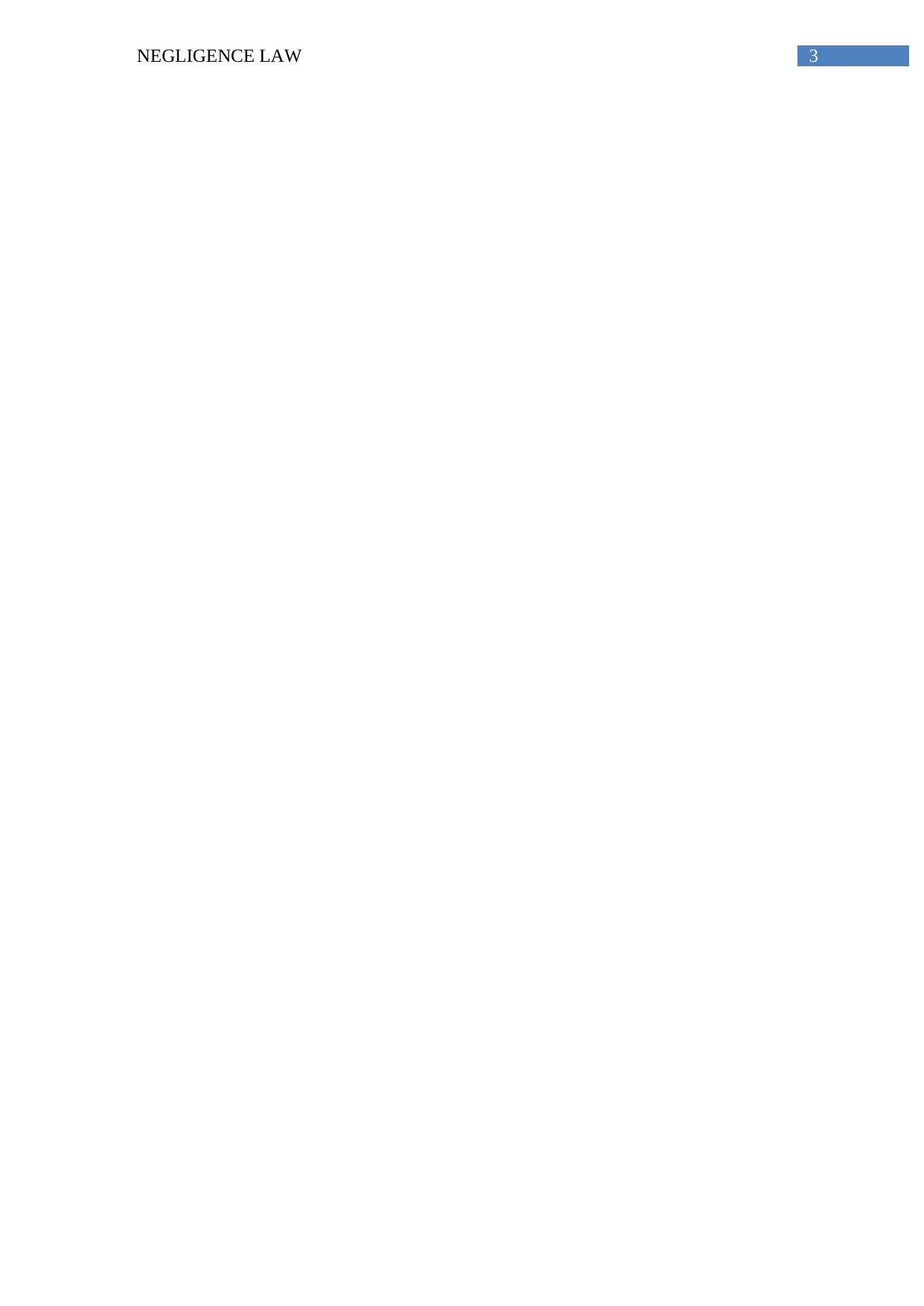Negligence Law: Defendant's Contention - Law Assignment
VerifiedAdded on 2020/04/21
|4
|386
|59
Homework Assignment
AI Summary
This assignment presents a legal analysis of a negligence case, focusing on the defendant's perspective. It examines the defendant's response to the plaintiff's claims, addressing key points such as the acceptance of certain facts, denial of liability for the plaintiff's injuries, and the application of contributory negligence. The defendant acknowledges certain facts from the plaintiff's claims, such as the injury sustained by the plaintiff. However, the defendant denies liability, citing the lack of foreseeability and the plaintiff's own actions, such as consuming alcohol, as contributing factors. The assignment references relevant legal principles, including the Civil Liability Act 2000 (NSW), to support the defendant's position, arguing that the defendant is not liable for the negligence. This assignment provides a detailed understanding of legal arguments and the application of relevant laws in a negligence case, which is beneficial for students.
1 out of 4









![[object Object]](/_next/static/media/star-bottom.7253800d.svg)